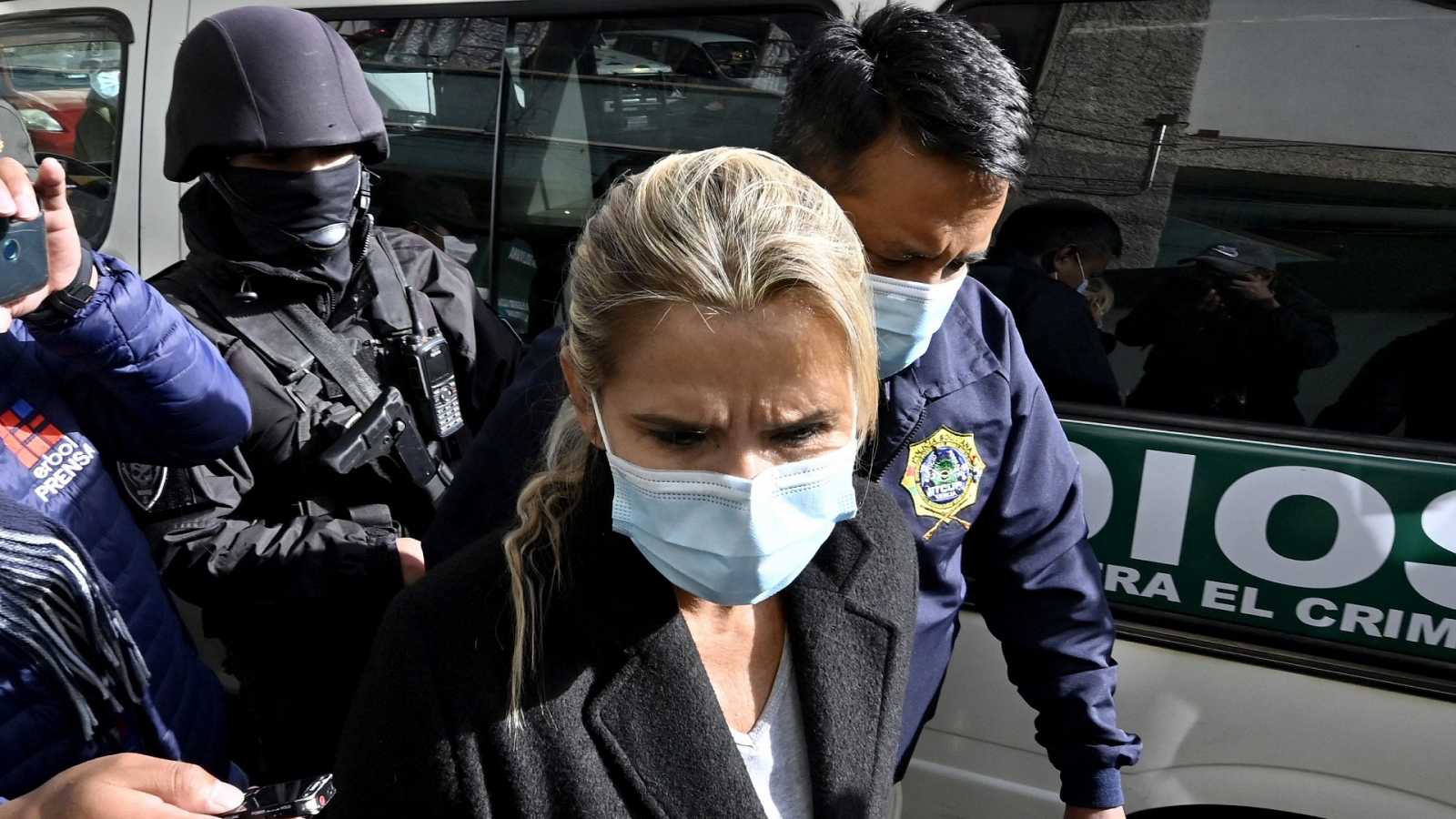RIO DE JANEIRO, BRAZIL – The accusation against the former interim president of Bolivia Jeanine Áñez, detained for more than two months in jail in La Paz for the so-called “coup d’état” case, has been extended with two new crimes, informed this Thursday the Attorney General’s Office of the country.
The prosecutor’s office agreed to the request to “expand the investigation” made by the attorney general’s office to include the crimes of unconstitutional resolutions and dereliction of duty, the country’s attorney general, Juan Lanchipa, told the media.

The “coup d’état” case is part of an investigation following a complaint by former MAS deputy Lidia Patty, who accused Luis Fernando Camacho, governor of Santa Cruz and candidate in last year’s presidential election, in which Luis Arce won, of instigating, along with his father and several military and police officers, the riots and the ousting of Evo Morales.
Among the main accused in this case are the former civic leader and governor of Santa Cruz, Luis Fernando Camacho, his father José Luis Camacho, former military and police chiefs. However, later the accusation was extended to Áñez and several of his former ministers, such as those of Justice and Energy, Álvaro Coímbra and Rodrigo Guzmán, respectively.
As a result, Áñez, Coímbra, Guzmán, and some members of the military are being held in preventive detention in prisons in La Paz.
This accusation is based on crimes allegedly committed by Áñez and some of her collaborators before she assumed the country’s presidency on an interim basis, for which reason the case is being handled in the ordinary justice system and not in a trial of responsibilities foreseen for former presidents.
In addition, the Ministry of Justice presented four accusatory proposals against the former head of State for actions she took during her government, which could result in liability trials before the Parliament.
Last Tuesday, the former interim president declared on her social media that after 65 days of her detention, she had not been presented with “a single piece of evidence” linking her “to the accused crimes of conspiracy, sedition, and terrorism,” declaring herself a “political prisoner.”
In the days following her arrest, Bolivia went through a climate of polarization. There were demonstrations in defense of Áñez denouncing an alleged judicial manipulation by the Government and others pointing out that her imprisonment was an act of justice for the deaths of civilians in 2019.

